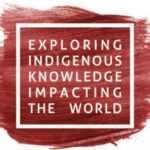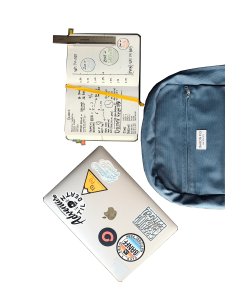Indigenous Conference 2022
October 8, 2022 2023-01-17 8:32Theme: Indigenous Worldview and Sustainable Earth Community
Statement:
- We (both we and fore-parents) are created by the same God
- Unless we make Christianity our own, it will not survive among us
- We must rediscover the core values of our culture (community spirit, peaceful co-existence with nature, interdependence, so on) by practicing them
- We shall practice our culture in the ways Jesus would do himself
- Collaboration with wider indigenous communities is important for sustainable earth community
- As indigenous community, it is our duty to support and defend the rights of other indigenous communities
Topics & Speakers:
- Re-Telling Indigenous Folktales in the context of World Christianity – Prof Lal Dena, former HOD of History, Manipur University
- The idea of ‘good life’ in a Kuki traditional worldview – Fr Peter Haokip, Episcopal Vicar, Bishop House, Imphal.
- The Worldviews of the Kuki and the Sámi, the Nordic Indigenous People: Toward Indigenous Theology for Creation CAre – Dr Jangkholam Haokip, BKI.
- Leadership and Indigenous wisdom: Toward an Alternative Leadership Style – Dr Leaderwell Pohsngap, former Principal of UBS, Pune.
- Re-Reading Sudhu Sundar Singh in North East India – Dr Richard Howell, Former Exe Secy EFI and Principal, Caleb Institute & Sadhu Sundar Singh Centre for Contextual Studies, Haryana
Report
At the outset, I, on behalf of BKI & DTS would like to thank our Almighty God for enabling us to conclude successfully the first ever Indigenous Conference in the Christianity history of ours in this part of Northeast. I also acknowledge and thank the various ways of supports received by many individuals, churches, and organizations for the conference. Here I present a brief report of the conference.
There were 52 participants from 12 different denominations/churches and 7 universities and colleges. There were both men and women representing age-group roughly between 25 to 70.
The conference began with prayers of invocation and intercession for the indigenous people’s land by involving nature, the element of earth in the act of prayer.
There were four academic papers were presented. In the first session, as most qualified persons for the task, both Retired Prof Lal Dena and Rev Fr Peter Haokip explored indigenous folktales, myths and stories and draw insights for sustainable community living. While the former provided an avenue to see Christ afresh through the lenses of indigenous culture, the later brought new lights to the old stories. The last two papers were designed to reflect on other indigenous people’s worldviews as our dialogue partners. Rev Dr Leaderwell’s paper looks at Khasi cultural values in search of an alternative leadership style in the context of contemporary leadership challenges. He emphasises the importance of putting community over self in leadership. His presentation became even more powerful when knowing his own leadership practices in internationally reputed institutions and organizations. To have one more dialogue partner from outside India, Rev Dr Haokip at el presented the worldview of Sami indigenous people’s worldview in the Nordic European countries. The presentation highlights both the exploitation of the people by majority community and the rich tradition which are hugely important for the development of creation care.
In light of the presentations and insights shared during the discussions, we unanimously agreed to make a statement.





